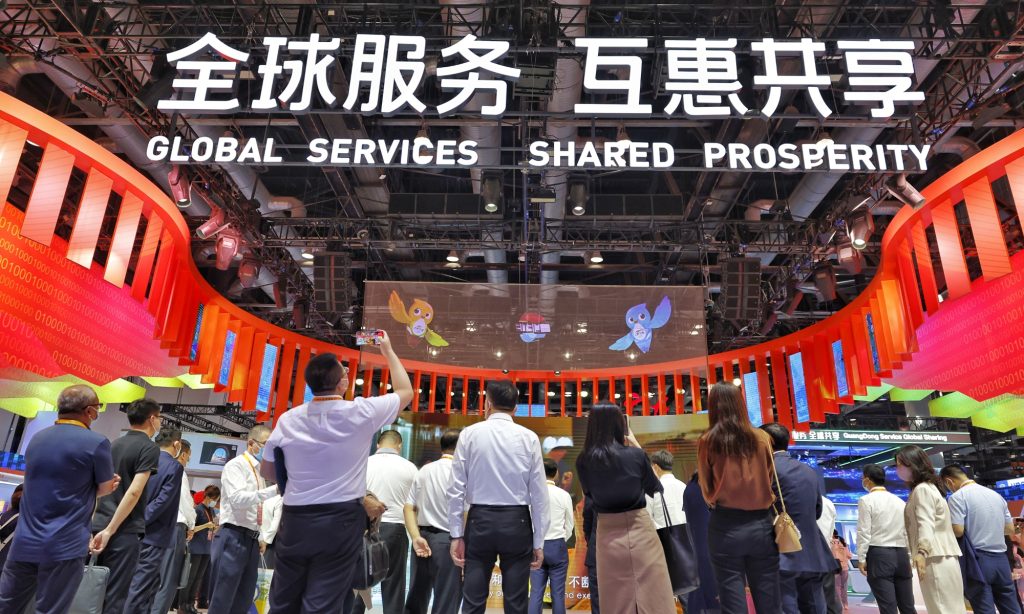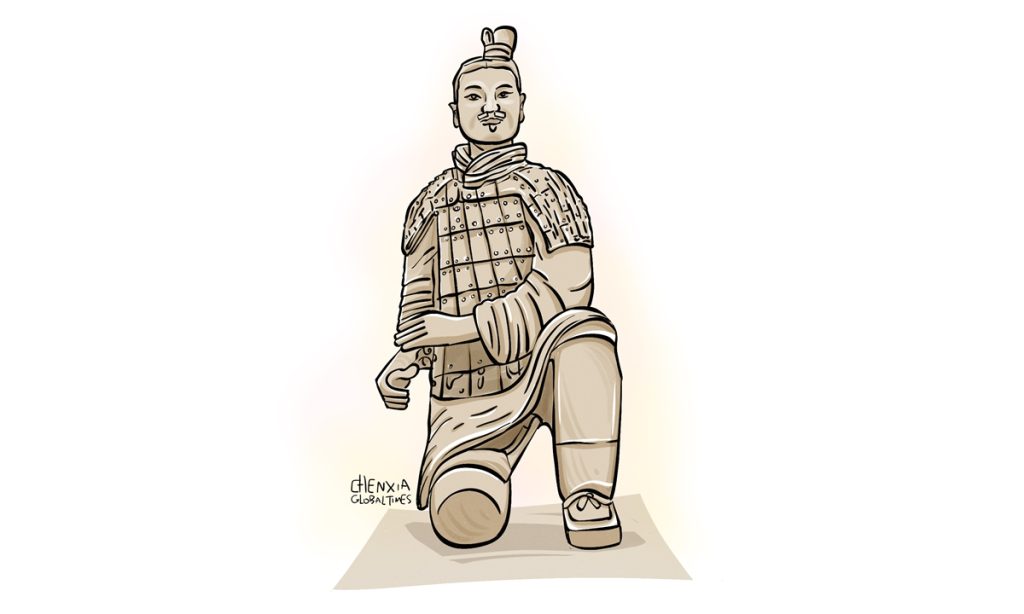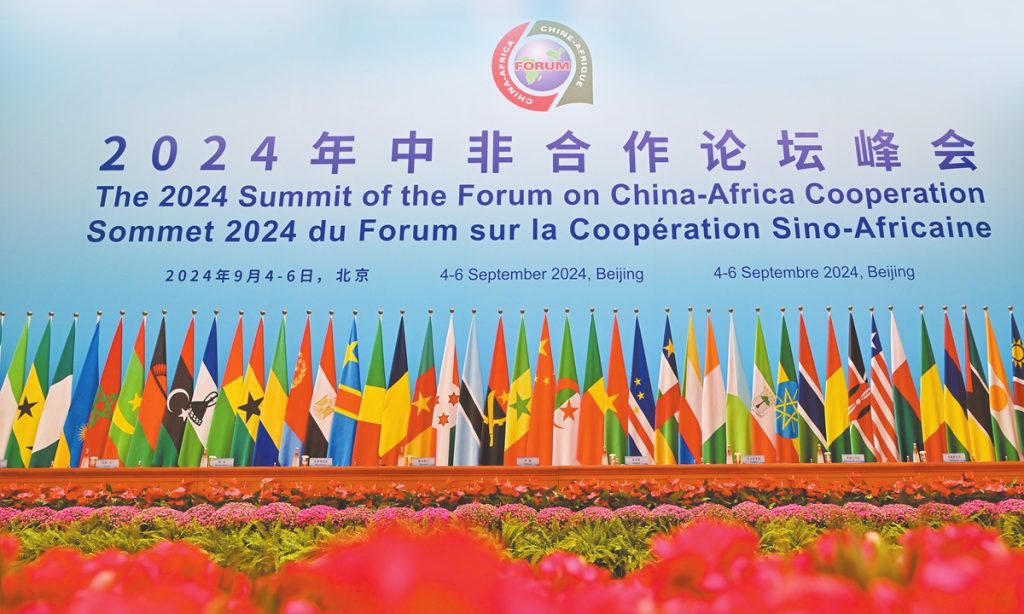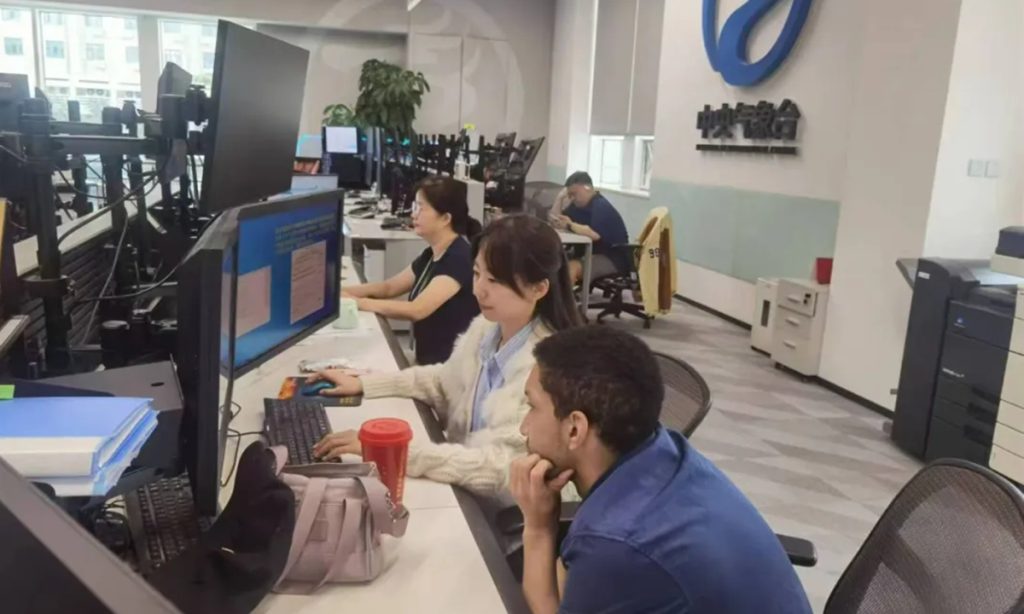Five 'economic tectonic forces' are reshaping global economy: Former governor of Bank of Canada

Editor's Note:
In today's world, where challenges and opportunities coexist, the global economy is undergoing an unprecedented transformation. How to respond to these changes and uncertainties has become a common issue for governments, businesses, and individuals alike. Recently, Global Times reporters Xie Wenting and Bai Yunyi (GT) conducted an exclusive interview with renowned economist and former governor of the Bank of Canada, Stephen Poloz (Poloz), on this topic. According to Poloz, five economic tectonic forces - population aging, debt accumulation, income inequality, technological advancement, and climate change - are constantly shifting and accumulating, much like geological forces, and are causing profound "economic earthquakes" around the globe.
GT: In The Next Age of Uncertainty, you mention five economic forces (aging population, debt accumulation, income inequality, technological advancement, and climate change) that are reshaping the global economy. Could you introduce your conclusions to our readers on how these forces will reshape our economy? How should we respond to these changes?
Poloz: I refer to these forces in my book as tectonic forces because they are like forces of nature. They are always moving, and there is nothing that we can actually do about them. When the earth's tectonic forces build up in strength and collide, we get earthquakes.
In the book, I examine past major economic events, and I discover that some of these same tectonic forces were active in those time periods, such as during the global depression in the 1800s, the depression of the 1930s, or the global financial crisis.
All five of these forces are rising in strength right now. At the same time, the global population is aging very rapidly. The fourth industrial revolution is just gaining momentum. Incoming inequality is at a historic high level and is about to rise even more because of the industrial revolution. And debt is on an unsustainable trajectory. Climate change is becoming very pressing as it manifests itself daily.
Therefore, the prediction of my book is that we face a future in which there will be more of these kinds of economic and financial earthquakes in the world as these forces collide with each other. I think we need to prepare ourselves. We need to be more conservative financially. We need to learn new skills all the time so we can shift our occupations. We need to invest in flexibility and adaptability.
GT: You mentioned in your book that technological advancement may cause instability in the job market. How do you think we should address the employment issues brought about by these new technologies?
Poloz: We've had three industrial revolutions in history: The steam engine, electricity, and the computer chip. Each time, many jobs have been destroyed by the new technology. However, at the same time, more jobs have been created than were destroyed after a period of time. The problem is that the process of job creation takes time, and it may take five to 10 years for the process to complete itself.
I think the important thing that most people forget is that new technology creates a lot of new wealth. Those are the companies that were first to develop the technology, or the companies that were the first to deploy the technology, and that new income and wealth that has been created is spent everywhere in the economy. So new jobs are created, not just in writing code or making iPads or whatever, but those jobs are in construction work, maintenance work, throughout the service sector, and other goods.
The fourth industrial revolution is just getting started. That's the digitization of our companies and the application of artificial intelligence (AI) to manage it. There's no doubt that this will be very stressful, possibly affecting as much as 20 percent of global workers, maybe more over time. As societies, we need to ensure we have good income safety nets to protect people during the transition and help facilitate the process. We also need to provide retraining opportunities for individuals to move between sectors or geographically. This is the best way to support the transition, make the process less painful, and realize the benefits sooner.
GT: Some say that the development of AI is different from the first and second industrial revolutions as it won't help create more jobs. What's your opinion?
Poloz: I don't agree with that. I think that, for example, with AI-driven vehicles, if all the trucks that deliver goods or transport items became automated vehicles, a whole new class of maintenance people would be needed to maintain those sophisticated vehicles. A traffic control system would also be necessary, as they can't just drive wherever they want.
The more important thing is that if AI really works as expected, it will create a lot of value, which goes out into the economy. While some people may be displaced, there will be growth in other areas of the economy. I am quite optimistic about this, especially when considering historical precedents. It has happened many times before, with each technological revolution leading to tremendous growth for society.
However, there is a risk that some people may be left behind, possibly permanently or for a long time. This can lead to political unrest, populism, and polarization in politics. It is important to learn from past mistakes and address income inequality to prevent further societal divisions.
GT: How would you evaluate the performance of the Chinese economy? Some have claimed that "China has peaked." What's your take?
Poloz: I really don't think China has peaked. As any economy matures and moves up the productivity scale, and as it gets larger, it is natural for its growth rate to slow down. That doesn't mean it has peaked. It still continues to reach new heights.
Countries are kind of like a flock of Canada geese. The geese are flying in a triangle, and the geese that are most advanced are at the front of the triangle. The geese that are less advanced are a little bit further back in the triangle. They have an advantage because the ones that are upfront are breaking the wind and making it easier for the geese to fly. Inevitably, they continue to progress.
Maintaining momentum is an important job. That maintenance of momentum comes from deep investments, education, collaborative models, cross-discipline models, research, and development. And these are all things that China has in abundance.
GT: In recent years, China has been vigorously developing the new energy industry and promoting a green economy transformation. How do you view this process?
Poloz: This is an example in which the government really should be involved. The reason is that we find ourselves in a world with excessive carbon emissions, and we know this because the market fails. The market does not get us to the right place. That's because air pollution is something that everybody contributes to by driving their car or buying something made in a factory that pollutes the air directly or indirectly. But no one pays for the air pollution. But we pay a price because the air is of lesser quality, or because emissions are causing climate change.
There are many ways of correcting this failure. But it's clear governments must take the lead. In my opinion, the best solution to the climate change issue is to invest as much as we can in carbon capture. The world will demand more and more energy as we move forward, and energy security will be very important to people. If we can solve the emissions problem with our existing technology, even though it may be expensive, that is the best way to focus our resources.
GT: Economic relations between China and the US have attracted a lot of attention. How do you view the roles of the two countries in global economic governance? What do you see as the future trends in economic cooperation and competition between China and the US?
Poloz: I do believe that our futures are closely intertwined. If we go back to the Canada geese metaphor, it is obvious that we are all, in a basic sense, flying forward together. This is the best way forward in terms of governance of the global economy or system. We have many forums for this, based on collaboration. They work well in a crisis, but not as effectively in other times.
When we consider international trade between the US and China, trade does not actually occur between the two countries. Trade occurs between business people in the US and business people in China. These individuals know and like each other, and they have been doing business together for many years. In my opinion, these relationships are stronger than politics. I am hopeful that the strength of these ties will continue to benefit us.
The main thing I worry about today is uncertainty. Because what it all does is it makes the future less certain. I find that today, politics adds to the uncertainty. It slows down business investment and the investments we make in the future. So, it slows the whole flock of Canada geese down. The more we can do to reduce uncertainty, the better things can be.
GT: What's your outlook on globalization? Do you think the era of globalization is ending, and is the era of regionalization on the rise?
Poloz: Globalization will never end because it is Mother Nature at work. Adam Smith taught us that the division of labor into smaller and smaller slices, that specialization in production, is the key to rising productivity and rising living standards that we all want.
In our economies, you don't do your own dry cleaning, you don't grow your own vegetables; you go to the grocery store and the dry cleaning store. Someone else specializes in those things, and that's how we all do better. Globalization just extends that simple idea to the international level. It was hard 200 years ago because things had to move around on animals or by ship. But today everything is easier to move around. So we can improve our living standards through international trade.
Sometimes I think that global supply chains were developed by the chief financial officer and optimized by dollars and cents. Then during the pandemic, we saw many disruptions in supply chains. We realized that sometimes the supply chains are risky because of some problems, so it's not all perfect. Now, what we are seeing is that supply chains are being remodeled more by the chief risk officer, rather than the chief financial officer.
This shift in focus is leading to a certain amount of reassurance in the supply chain. It is a re-balancing of globalization, and a new balance will emerge, albeit slightly different from before. Globalization is not black and white; it is an equilibrium that will reemerge.








